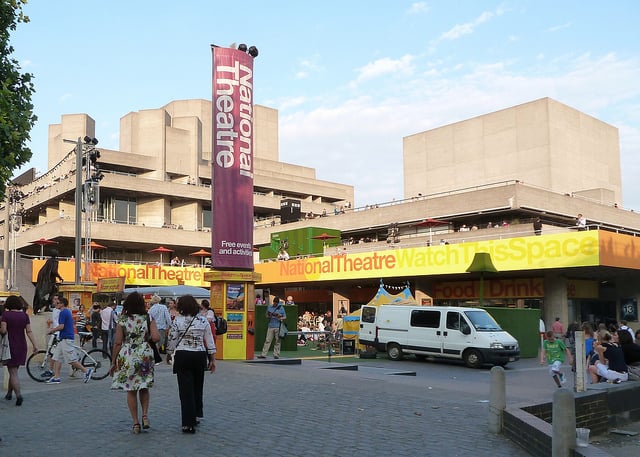
The National Theatre received £3m to cover increased costs on its capital project
Photo: Sofia Gk (CC BY-NC-SA 2.0)
EXCLUSIVE: ACE pays off debts for the select few
Major London institutions were given multi-million pound capital grants for which no application process was required.
One-off capital grants worth over £10m have been made to five London-based organisations to use up an under-spend in Arts Council England’s (ACE) capital Grant in Aid budget from the DCMS. Rather than invite applications for the money, ACE made its decisions on who would benefit by “assessing the National Portfolio’s balance sheets and creating a list of organisations that would be able to use this type of restricted funding in order to support their resilience”. Potential recipients were shortlisted and “their accounts were then reviewed in detail in order to find the organisations that would benefit most from this funding”.
In 2012/13, nearly £3m went to the Southbank Centre to pay down a part of its debt accrued on a previous capital project, while the artist studio charity Acme Studios received £1.6m and Art Services Grants Ltd, known as SPACE Studios, was awarded £987k. The following year, £3m went to the Royal National Theatre to cover increased costs on its capital project during that financial year, while another London-based organisation, the name of which has been redacted “due to commercial sensitivities”, received £1.5m. ACE considers that disclosing the name of this organisation “would be likely to prejudice the commercial interests of the organisation concerned as it would jeopardise their ability to negotiate with other funding partners”. An ACE spokesperson told AP: “…these payments are certainly not restricted to London and in subsequent years may go to organisations outside of the capital.”
Responding to the news, the authors of the RoCC report, which first drew attention to the funding imbalance between London and the regions, said: “This latest manifestation of the 'closed system' that the Arts Council and its major metropolitan clients has become is saddening but sadly not surprising. The scale of back-door funding of favourites such as this has consistently outweighed the benefits of publicly announced and adjudicated schemes specifically designed to benefit the country beyond metropolitan London. It is now clear that current arrangements to support the arts and culture in England require fundamental review and that such a review will need to be initiated by the political parties and parliament.”
The reasons for the capital grant underspend are complex, and date back to ACE’s 2011/2015 Grant-in-Aid settlement from the DCMS, which included just over £11m a year that was ring-fenced for capital expenditure and had to be spent on capital assets or stocks, repaying debt or acquiring long-term financial assets. ACE attempted to use this budget as part of its regular funding to a number of England’s bigger, building-based National Portfolio Organisations (NPOs), but the combined “day to day capital expenditure” of these organisations over the two years fell short of the ring-fenced figure by £10m. To compensate, their funding was topped up from ACE’s contingency revenue budget, but this meant that the £10m was released for capital expenditure. Rather than return this to the DCMS, ACE chose to grant it to the five organisations.
The decision-making process for the distribution of the one-off Grant-in-Aid funding awards appears to be similar to that used for the distribution of ACE’s “hidden” £10m strategic Grant-in-Aid budget for which there is also no open application process. The existence of such practices, of which no information is made public, casts doubt on claims by ACE Chair Sir Peter Bazalgette at a recent hearing of the ongoing Select Committee inquiry that there has been “a step change in how accountable the Arts Council is for the public funds it invests”. It also contradicts claims by Culture Minister Ed Vaizey that “the Arts Council can only give money to people who apply to them and they do encourage applications but they are not necessarily forthcoming.” Vaizey also told the Select Committee: “It is important that people feel that Government funding and lottery funding for the arts is distributed on a fair and equitable basis. It is an important part of my role to effectively hold the Arts Council to account on that basis.”
In the next funding period, from 2015/16 to 2017/18, ACE has decided to use any capital Grant in Aid from the DCMS to fund a small scale capital programme. This is likely to open in autumn 2014, with an upper limit of £500k, and both NPOs and non NPOs will be eligible to apply. Around £11m will be available for 2015/16, but the 2016/17 and 2017/18 allocations won’t be announced until after the next general election in May 2015.
Join the Discussion
You must be logged in to post a comment.